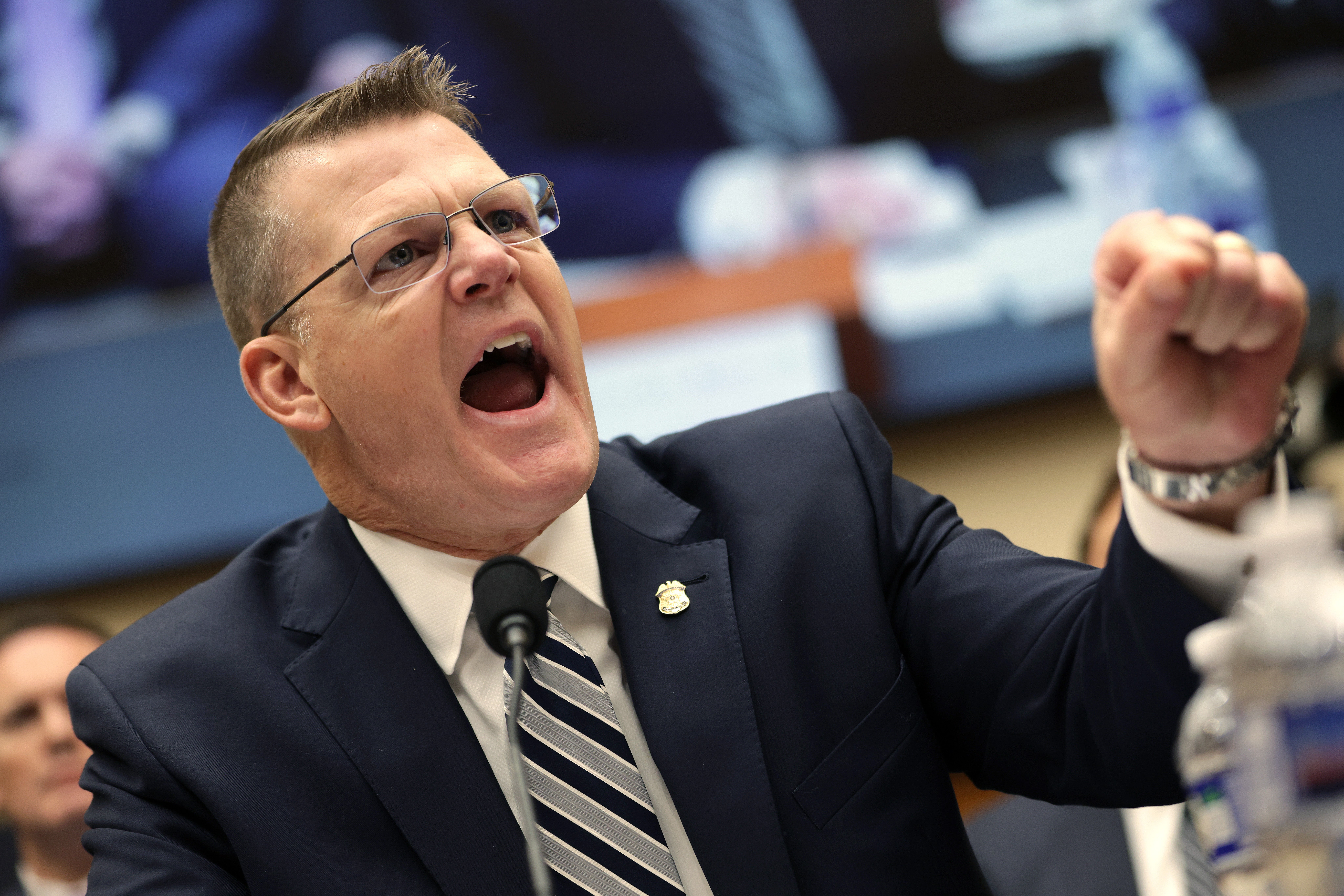A final congressional hearing on law enforcement failures surrounding the attempted assassination of Donald Trump devolved into a shouting match between a Republican congressman and the acting director of the Secret Service.
Rep. Pat Fallon of Texas — who was displaying a blown-up image of Rowe behind Trump, President Joe Biden and Vice President Kamala Harris at Ground Zero in Manhattan during a 9/11 memorial this year — at first accused Rowe of putting the president’s detail out of position so he could stand behind him.
“What you’re not seeing is [the special agent in charge] of the detail out of the picture’s view,” said Rowe, growing frustrated by Fallon’s line of questions.
“And that is the day where we remember the more than 3,000 people that have died on 9/11. I actually responded to Ground Zero,” he said. “I was there going through the ashes of the World Trade Center.”
Fallon shouted over him.
“I’m not asking you that!” he said. “I’m asking you, if you were — were you the special agent in charge! You were not!”
“I was there,” Rowe said as the two men began shouting over one another, “to show respect to our secret service members that died on 9/11. … Do not invoke 9/11 for political purposes!”
“I am not,” Fallon fired back.
“You are, sir,” Rowe said. “You are way out of line.”
“I’m an elected member of Congress, and I am asking you a serious question,” Fallon said.
“I am a public servant, who has served this nation … and I have served on our nation’s darkest day,” Rowe said. “Do not politicize it.”
Rowe repeatedly stressed he attended the memorial to represent the Secret Service, and that his presence “did not affect protective operations.”
“You know why you were there?” said Fallon, pointing his finger menacingly at the director.
“Because you wanted to be visible, because you were auditioning for this job, which you’re not gonna get,” he said. “You endangered President Biden’s life, Vice President Harris’s life, because you put those agents out of position.”

Rowe began overseeing the Secret Service after the resignation of Kimberly Cheatle, who stepped down after a gunman fired an AR-15 into a campaign rally in Butler, Pennsylvania, killing one attendee and injuring two others.
A bullet grazed Trump’s ear, and agents swarmed around him as he hit the ground with blood running down the side of his face and neck. In her testimony to Congress in the days that followed, Cheatle called the shooting the agency’s “most significant operational failure” in decades.
A House panel was tasked with investigating security failures at the rally and at an alleged second attempt on Trump’s life at his Florida golf course in September.
In his first appearance before the task force, Rowe told lawmakers on Thursday that “all disciplinary measures are imposed to promote the efficiency of the Secret Service and to encourage behaviors and principles that ensure the success of the agency’s mission.”
“Employees receiving proposals of discipline will be provided due process under agency policy as well as any applicable laws and regulations,” he said in his testimony. “But, let me be clear, there will be accountability, and that accountability is occurring. Consistent with applicable laws and regulations, I cannot comment further on specific disciplinary actions underway or being considered.”
In his opening statement, he said the July shooting was an “abject failure” of the Secret Service that “underscored critical gaps” in the agency’s operations.
“I recognize that we did not meet the expectations of the American public, Congress and our protectees, and they rightly have that idea based on how we performed,” he said.
Republican congressman Mark Green also lashed out at Rowe, saying “your guys showed up that day and didn’t give a s***.”
“There was apathy and complacency,” he said. “This is a leadership issue … a culture issue.”
The task force has performed 46 interviews, joined more than a dozen briefings with agencies, and reviewed 20,000 pages of documents, according to Rep. Mike Kelly, whose district includes Butler.
He said every employee that investigators have asked to speak with was made available by the Secret Service, and that the agency chose “a path of cooperation in pursuit of the truth.”







